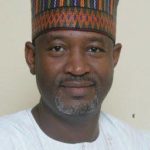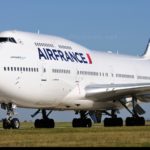
There are fears that the Bilateral Air Service Agreement (BASA) fund, which accruals had risen to over $100 million (N38.1 billion) may have been diverted to fund projects outside the aviation sector, aviation industry sources have said.
THISDAY investigations revealed that the funds, which are paid by foreign airlines operating into Nigeria, stem from the commercial agreement between Nigeria and host countries of the international carriers may have been depleted without definite projects executed with the funds.
The fund is domiciled with the Central Bank of Nigeria (CBN) but managed by the Nigeria Civil Aviation Authority (NCAA), with the Director General as signatory.
In 2014, the then Ministry of Aviation hinted that Nigeria may abolish commercial agreement, an offshoot of BASA, which defines the amount of money an airline should pay for each passenger, but indications show that this was not carried through.
So while there was a belief that Nigeria was transiting to slot allocation, which is an alternative to commercial agreement, the fund has continued to accrue.
An NCAA source hinted that since the funds were utilised for airport remodeling, which was not completed as planned, the fund has continued to accumulate and may have been diverted to fund projects outside the industry.
Industry observers noted government is in dire need of money to fund landing aids, runway lighting, perimeter fencing of most airports and improve facilities and equipment at the Nigeria College of Aviation Technology (NCAT) Zaria, but the BASA fund, which ought to be used to carry out these projects has been left in CBN.
They also suggested that the money should also be used to complete some of the perishable terminals now government is emphasising on export of agro-allied produce and as it planned to concession four international airports in the country.
THISDAY also learnt that the Minister of State for Aviation, Senator Hadi Sirika travelled to Singapore few days ago with top official of the industry to negotiate BASA for effective resumption of flight by Singapore Airlines to Nigeria.
It is the view of industry stakeholders that BASA fund be accounted for and what it is used for clearly stated projects to ensure that the money is not being diverted for personal use by individuals who have access to the funds.
“So much money has accumulated in the BASA fund. The only time the money from there was used was during the airport remodeling project; since them we don’t know what is happening to the fund. Government may have taken money from the fund when some parastatals in the industry failed to remit their 25 percent allocation of their revenue to the federation account and their money was drawn at source, but we are not sure that the money is being utilised now,” a source told THISDAY.
BASA is a reciprocal agreement between two countries whose airlines ought to fly to both countries but as Nigeria does not have a national carrier, foreign carriers pay government for their frequencies into the country and over time there has been criticisms that Nigeria is being shortchanged because while other airlines fly to Nigeria, most of those destinations are not being reciprocated by Nigerian carriers, which fly to few international routes.
“These international airlines pay us a lot of money. Recently Air France paid us $8million and Emirates pays us a lot of money; the same with other foreign airlines but no one is talking about the fund,” industry source said.
THISDAY






